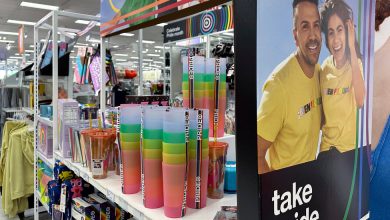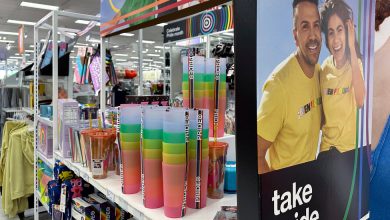A Kansas College Restored a Mercedes. It’s Now Headed to Pebble Beach.

Vintage car collecting faces an existential threat: The artisans who know how to restore the classics are aging. According to Paul Russell, the founder of a classic-car restoration shop in Massachusetts, the rate of attrition now exceeds that of replacement.
A group of more than 60 college students in Kansas is bringing attention to the problem in an incredibly striking way. Over six years, they have restored a 1953 Mercedes-Benz 300S, and it’s been accepted as an entrant at perhaps the most prestigious car show on the planet: the Pebble Beach Concours d’Elegance, held next month in California.
“Imagine as if an all-state winning high school football team played a championship-caliber N.F.L. team in the Super Bowl, that’s really what this is like,” said Brian Martin, director of the Automotive Restoration Technology Program at McPherson College in Kansas.
The idea of competing at Pebble Beach was a moonshot. It came about during a strategic planning session over a decade ago. The actual work began in earnest with the purchase of the car in late 2016. The college will not say how much it paid for the Mercedes, but based on previous sales its estimated worth is more than $500,000.
“We decided to search for a Mercedes-Benz 300S Cabriolet, which represented the top-of-the-line luxury car available from Mercedes in the early 1950s,” Mr. Martin said. “It’s a car with the requisite elegance to be accepted at Pebble Beach, but also one with sufficient parts availability and support from the Mercedes community to make it a practical undertaking.”
With approximately 200 made, it’s a rare car, so much so that only one of the students participating in the restoration had even seen one before. The students worked year round on the project, with a stipend provided by the college.
The 300S Mercedes is extremely complex. Matthew Kroeker, a student who worked on the car, said it had over 13,000 parts compared with the 300 SL Gullwing, the top-of-the-line Mercedes sports car of the time, which had about 6,500 parts.
Because restoring the Mercedes 300S was a long undertaking, students at the four-year college graduated midproject and were replaced by new students. While there were detailed photos, notes and manuals, a new team of students had to reassemble the car, which had been taken apart by their predecessors.
“The freshmen working on finishing the car were in middle school when the project started,” Mr. Martin said.
The Mercedes-Benz 300S Cabriolet was hand-built, using traditional assembly methods and prewar-style materials, which included many intricately made parts, some made out of exotic materials like magnesium.
The shifter mechanism is one of these, unique to this car and virtually irreplaceable. It was also broken in several places. It was thought to be irreparable because, Mr. Kroeker said, it’s quite dangerous to weld magnesium — if it gets too hot, the resulting fire is very difficult to extinguish. “This being Kansas, we found an oil refinery service company that had the expertise to weld the assembly back together,” he said.
Even something as seemingly straightforward as painting the car was a challenge. When a car is judged at Pebble Beach, authenticity and quality of work is valued as much as elegance and presence. The Mercedes originally would have been painted with lacquer, which is far less durable than modern paints.
It takes painstaking amounts of rubbing, much of it by hand, to achieve lacquer’s signature sheen. Lacquer is also obsolete and environmentally unfriendly. With the help of Mr. Russell, the founder of the classic car restoration shop (who shipped a similar car that he had restored to the college for reference), the students were able to mix a formula using modern paint that approximated the look of a lacquer finish.
“We added a bit of matte finish clear coat to the black paint, it gave it the right look, but with added durability,” Mr. Kroeker said.
Mr. Russell, whose work has won Best of Show at Pebble Beach numerous times, was involved with the project from the beginning, even helping to select the particular car.
“It had good bones, it was very original, and provided some very good patterns for things like seats and carpets, and how these items were originally produced,” he said.
Mercedes-Benz was also integral to the success of the project. Like Porsche and Ferrari, Mercedes-Benz has a keen understanding of the importance of its brand’s heritage. Mr. Kroeker said that the Mercedes-Benz Classic Center in California helped the school source parts and manuals, and provided advice and expertise.
Mr. Martin said that McPherson College graduates were working at Mr. Russell’s shop and at the Mercedes-Benz center, as well as at restoration shops around the world.
“Regardless of the outcome at Pebble Beach,” Mr. Martin said, “this project will mark a turning point in both the restoration program and McPherson College.”




